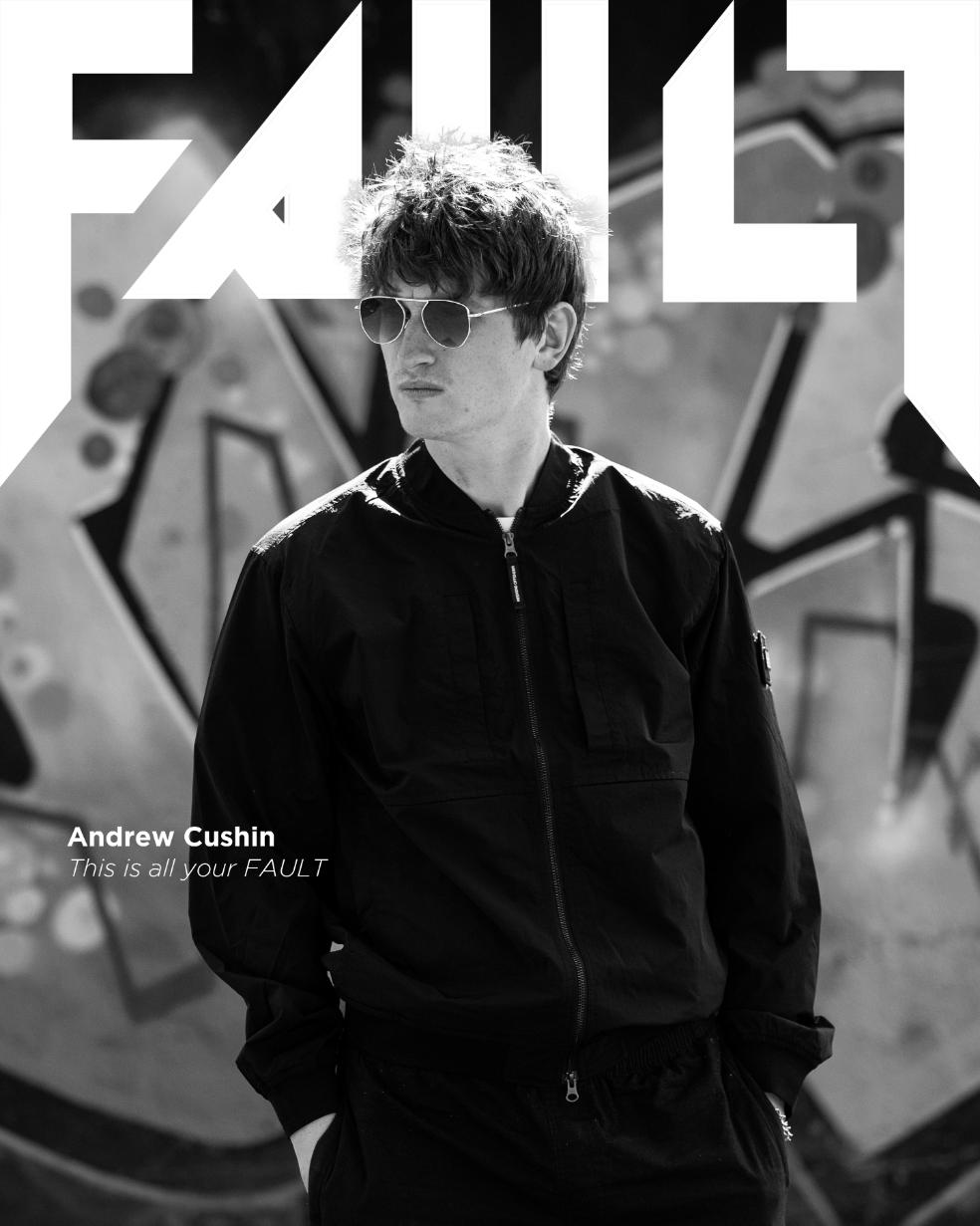Andrew Cushin Talks Vulnerability, Live Energy and New Album Ahead of UK Tour

Few artists can claim co-signs from Noel Gallagher, Pete Doherty, and Sam Fender before their second album even drops, but Andrew Cushin isn’t your average rising star. With Love Is For Everyone, the Newcastle native delivers on the promise that’s seen him lauded by industry heavyweights and beloved by fans across the UK and beyond. Out May 2nd via LAB Records, the album is a deeply personal yet universally resonant collection of songs, built around Cushin’s belief that music should be for everyone—strugglers and romantics alike.
In our conversation, Andrew opens up about his creative process, the balance between vulnerability and confidence, and the raw energy he’s channelled into this new body of work. As he prepares to take Love Is For Everyone on the road, we caught up with him to hear more about what’s changed, what’s stayed the same, and what continues to drive his songwriting forward.
FAULT Magazine: Your new album is titled Love Is For Everyone—what does that phrase mean to you personally, and how does it inform the record’s overarching message?
Andrew Cushin: I just wanted to write something that relates to everyone… I think everyone can relate to falling in love or out of love. The first track I wrote for the record was called “Love is For Everyone”, so it just seemed right that it be the album title too.
FAULT Magazine: You’ve mentioned wanting to write something “relevant or relatable to everyone.” When you’re in the writing process, how do you balance personal storytelling with universal resonance?
Andrew Cushin: I don’t think about it too much, to be honest—whatever I write, I write. I don’t get bogged down by something not coming together anymore. I appreciate that certain songs and projects can take longer than others. The storytelling and pulling on personal experiences I find easy, but I don’t necessarily aim to only do that.
FAULT Magazine: Were there any songs that were especially difficult to write—or perhaps, unexpectedly healing?
Andrew Cushin: Not particularly. I wrote a lot of songs for this record. The difficult part was cutting it down to 12-14 tracks. There were a few songs such as “Kiss The Sky” and “What Else You Got” that took some working out in the studio, and figuring out which instrumentation would be most beneficial for them.
FAULT Magazine: You’ve talked about capturing the “raw energy” of your live shows on this album—was there anything in particular you changed about your process to do so?
Andrew Cushin: We just picked up the electric guitar a lot more on this record, I think. I was very conscious to make everything as upbeat and positive-sounding as I could. We pulled on more 90s indie influences for this one.
FAULT Magazine: How do you cope with vulnerability in your music—does it feel exposing or empowering?
Andrew Cushin: Bit of both, I suppose… There are certain songs which make me feel proud that I can talk about and sing, and others that leave me a little open on stage. The biggest thing is that other people can relate to them—as always, if someone can be cheered up or helped by one of my records, that’s by far the biggest reward.
FAULT Magazine: How has life on the road shaped your creative output or shifted your perspective as a songwriter?
Andrew Cushin: The longer you spend on the road, I suppose, I’m strapped to the guitar a lot more, so I tend to do more writing. Again, I don’t necessarily change how or what I write about depending on where I am—I just do more of it.
FAULT Magazine: What do you think has changed most in your creative development from your debut to now?
Andrew Cushin: I think I’m a more confident performer now. I’ve never had a problem with getting on stage no matter where I am or how many people are there, but I do think I’m a more well-rounded artist now after gigging and touring for as long as I have. I just want to keep going and improving.
FAULT Magazine: What is your FAULT?
Andrew Cushin: I’m definitely pretty hard on myself if I get something wrong on stage or damage my voice—even if it’s so minute it’s undetectable. I wouldn’t change that about me though; I think it shows how much I care about what I’m doing. So is that a FAULT? I don’t know…